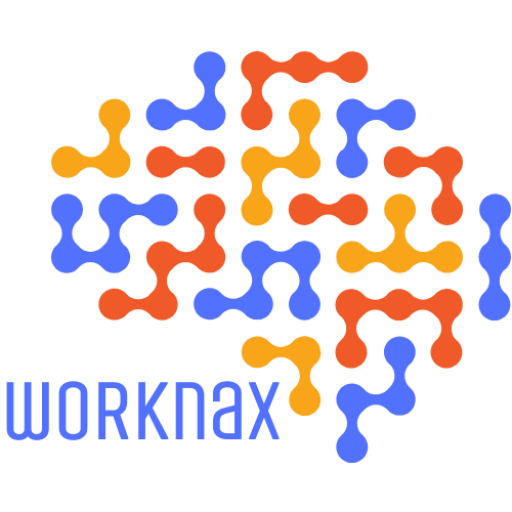Anúncios
In today’s fast-paced world, the significance of lifelong learning is paramount and cannot be overstated. As industries continuously evolve and technology gradually advances, individuals must recognize that staying relevant necessitates a committed focus on ongoing education. The landscape of knowledge and skills required in the workplace shifts rapidly, and adapting to these changes is essential for both personal and professional growth.
Lifelong learning empowers individuals to acquire new skills and simultaneously enhance existing ones, leaving them better equipped to navigate a competitive and ever-changing job market. This adaptability not only aids in retaining one’s relevance in the workforce, but it also fosters personal development. When individuals embrace opportunities to learn, they open doors to new experiences and insights that contribute to their overall growth and understanding of the world around them.
Moreover, companies increasingly prioritize employees who demonstrate a strong willingness to learn and adapt. Organizations actively seek individuals who engage in self-improvement, showcasing initiative and a genuine desire for growth. Such attributes are highly valued in the modern professional landscape, as employers recognize that a culture of learning within their teams can lead to enhanced performance and innovation.
Engaging in lifelong learning also facilitates the expansion of one’s professional network. As individuals pursue new knowledge, they naturally connect with others in their field, fostering meaningful relationships that can lead to career advancements, partnerships, and collaborative projects. Networking is an invaluable asset in today’s professional environment, and the connections made through continuous learning can provide significant advantages throughout one’s career.
Furthermore, lifelong learning enhances problem-solving skills. By exploring new subjects and ideas, individuals learn to approach challenges from various angles. This multifaceted approach equips them to tackle complex issues with confidence and creativity. The process of engaging with different disciplines encourages innovative thinking, which is crucial for success in any field.
Incorporating lifelong learning into one’s daily routine is both practical and readily accessible. With the wealth of online courses, webinars, podcasts, and other educational resources available, individuals from all walks of life can find learning opportunities that align with their schedules and learning preferences. This level of accessibility democratizes education, allowing people from diverse backgrounds and experiences to pursue knowledge on their own terms, thereby enriching their lives and perspectives.
Gone are the days when learning was confined solely to traditional educational institutions. The rise of online platforms has revolutionized access to education, making it possible for individuals to teach themselves new skills at their own pace and convenience. This shift empowers people to take charge of their learning journeys, fostering a culture of curiosity and exploration.
Moreover, lifelong learning cultivates a growth mindset. When individuals embrace the belief that intelligence and abilities can be cultivated through effort, they position themselves to become resilient in the face of challenges. This mind shift encourages them to view setbacks as opportunities for growth, ultimately leading to increased resilience and self-efficacy. As a result, individuals who prioritize lifelong learning are often more adept at navigating the ups and downs of life.
As industries evolve and shift in response to external pressures, the skills required for success also transform. Lifelong learners often find themselves equipped with sought-after competencies that distinguish them from their peers. This differentiation not only enhances job security but also creates greater potential for career advancement and professional fulfillment. Employers increasingly favor candidates who exhibit a commitment to continuous development, leading to better job prospects and opportunities.
Additionally, staying current through lifelong learning can significantly enhance job satisfaction. As individuals acquire new skills and knowledge, they bolster their confidence in their capabilities, which often leads to a more engaging and rewarding work experience. When employees feel competent and challenged, they are more likely to remain satisfied in their roles and contribute meaningfully to their organizations.
Integrating learning into daily life can be achieved with simple actions, such as dedicating a few minutes each day to reading articles, listening to podcasts, or enrolling in short online courses. This consistent effort nurtures a habit of learning, leading to significant cumulative benefits over time. The investment in ongoing education pays off as individuals expand their knowledge base and sharpen their skills.
In an era marked by rapid technological advancements, specific skills can become obsolete in a blink of an eye. Lifelong learners are better positioned to pivot and adapt, ensuring their relevance and effectiveness within their chosen fields. They recognize that ongoing education is not merely an option but a necessity in a world moving at lightning speed.
Beyond professional advantages, the benefits of lifelong learning extend to mental health as well. Engaging in new educational experiences keeps the mind active and stimulated, which can help reduce stress and promote overall well-being. Continuous learning provides a rich layer of enrichment to life, allowing individuals to pursue passions and interests that contribute positively to their mental health and happiness.
Moreover, the commitment to lifelong learning reflects a natural curiosity and passion for knowledge that can inspire those around you. By actively pursuing your educational interests, you become a role model and catalyst for encouraging colleagues, friends, and family members to embrace the transformative power of learning. This ripple effect can foster a community culture centered around exploration, curiosity, and growth.
Networking opportunities abound within lifelong learning environments. Engaging with fellow learners, instructors, and industry professionals not only enhances one’s understanding of subjects but can also lead to invaluable connections that open doors to future opportunities and collaborations. Building a strong professional network can be crucial for personal and career development in the long run.
The pursuit of knowledge can also lead to unexpected career changes. Many individuals discover new passions or avenues for growth while engaging in lifelong education, ultimately finding fulfilling career transitions that align with their interests and values. This journey of exploration and learning can be incredibly rewarding, leading to a more satisfying and purpose-driven life.
Cultural awareness is another significant advantage of lifelong learning. By exposing oneself to diverse perspectives, ideas, and subjects, individuals cultivate a broader understanding of the world, which enhances empathy and collaborative skills. This heightened awareness can lead to more meaningful interactions and connections with others from varying backgrounds and experiences.
Incorporating lifelong learning into one’s lifestyle fuels creativity. A more diverse knowledge base enables individuals to generate innovative ideas and solutions, making them valuable contributors in both professional and personal spheres. The wealth of perspectives and insights gained through continued education fosters unique approaches that can lead to groundbreaking developments.
Additionally, lifelong learning contributes positively to professional branding. Individuals who actively showcase their commitment to ongoing education position themselves as industry experts who are dedicated to personal growth. This proactive approach can enhance one’s reputation and visibility in the field, attracting potential clients, employers, and collaborators who value knowledge and expertise.
Many organizations recognize the importance of fostering a culture of lifelong learning among their employees, providing opportunities for professional development to encourage continuous education. Participating in these initiatives can lead to promotions, salary increases, and increased overall job satisfaction. Employers who invest in their employees’ learning create a motivated and skilled workforce beneficial for their organization’s success.
During challenging economic times, lifelong learners often fare better in the job market. Their adaptability and willingness to learn enable them to ride the waves of uncertainty, reducing the risk of stagnation and preparing them to seize new opportunities as they arise. The dynamic nature of lifelong learners positions them not just to survive but to thrive amid change.
As technology continues to evolve, so too do the skills required in the workforce. Lifelong learning allows individuals to stay one step ahead, ensuring their relevance and value as assets to their organizations. The commitment to adaptation through continuous education ultimately benefits both the individual and their employer, creating a mutually advantageous relationship.
Employers understand that investing in their employees’ ongoing learning contributes to a more dedicated, skilled, and innovative workforce. Lifelong learners push boundaries and inspire their coworkers, leading to enhanced creativity and productivity. When learning becomes a collective goal, it creates an enriching environment where everyone can succeed.
Continuing education doesn’t have to occur through formal channels alone. Informal methods such as workshops, community courses, and self-directed studies provide immense value while seamlessly fitting into diverse lifestyles. Lifelong learning is as much about personal exploration as it is about structured education.
Thinking outside the box frequently stems from lifelong learning, where exposure to various ideas and disciplines encourages creative problem-solving. This expansive thinking benefits personal projects and professional endeavors, allowing individuals to implement solutions that resonate and engage others.
Feedback gained from lifelong learning endeavors serves to enrich understanding. Interactions with peers and instructors provide valuable insights that help refine skills and enhance comprehension. This ongoing dialogue and exchange of knowledge encourage continuous improvement, ultimately leading to mastery in chosen fields.
While challenges may arise during one’s learning journey, determination and perseverance remain crucial. Overcoming obstacles helps cultivate resilience and enhances character, traits necessary for achieving success in any field. The challenges faced through lifelong learning are opportunities for growth, reaffirming the importance of commitment to personal development.
A strong commitment to lifelong learning can also foster a sense of purpose. It offers valid reasons for personal improvement, motivating individuals to pursue their passions and make meaningful contributions to society. This pursuit of knowledge enriches lives and empowers individuals to impact their communities positively.
Encouraging a culture of lifelong learning within workplaces promotes teamwork and collaboration. When employees engage in learning together, they foster camaraderie and a supportive environment conducive to innovation and shared success. This sense of community enhances overall morale and creates lasting connections among colleagues.
Finally, the impact of lifelong learning extends well beyond the individual. Societal progress relies heavily on the continuous education of its members, as individuals contribute their knowledge and skills to address complex global challenges. The collective growth of a community enhances its ability to tackle pressing issues while fostering social cohesion and understanding.
In conclusion, lifelong learning serves as a cornerstone for personal and professional success. The numerous benefits it brings—ranging from adaptability and improved problem-solving capabilities to enhanced creativity and mental well-being—are undeniable. By embracing a commitment to lifelong learning, individuals can ensure they remain relevant, engaged, and fulfilled in all aspects of their lives. The journey of learning is continuous, and the rewards that come with it are immeasurable, enriching one’s life and the lives of those around them.



